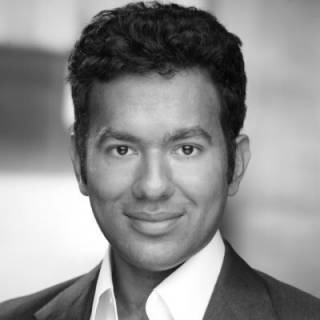UCL alumni from a huge range of academic backgrounds are pursuing rewarding careers in sustainability. Here we share the story of Saif Hameed, founder and CEO of Altruistiq.
Saif Hameed (UCL Laws 2009) is founder and CEO of Altruistiq, a technology company that automates data management and analytics for enterprise sustainability. Altruistiq is one of Business Insider’s 17 carbon accounting companies to watch for 2022.
About Altruistiq
Altruistiq was founded to enable businesses to reduce their environmental impact. Since January 2021, the start-up has provided a software solution that generates highly granular, highly scalable, and highly accurate impact analysis (e.g., to quantify the carbon footprint of a business, and identify specific reduction opportunities). Although still largely in stealth mode, the company has attracted attention from the right quarters. Altruistiq works with some of the world’s largest companies (including several household names) and counts the founders of 3 unicorn tech companies amongst its first investors.
Saif's journey

His career has been underpinned by a commitment to the environment. He explains: “Technology came via environmental activism, followed by climate response in the public sector, followed by sustainability strategy consulting”.
Saif's perspective
How did your time at UCL help you start your career and find employment?
When I started my degree at UCL, I was quite confident that I wanted to be a lawyer focused on international human rights. Several formative experiences took my career in a different direction altogether, but two sets of experiences at UCL have had a lasting impact on me:
Entrepreneurship. The opportunities to engage with and to lead different student societies helped shape my appreciation for good organisation and process. It was also a great time to be organising student events – Pakistan was undergoing a civil rights revolution, and I was able to host multiple prominent leaders in London. This helped foster my interest in politics.
Jurisprudence. This is an odd one, but Jurisprudence is the subject I most enjoyed (and the only one where I did exceptionally well). My understanding of the foundational principles of law and ethics has actually underpinned how I’ve approached the organisation of my technology company, Altruistiq, and the development of a self-governing culture.
What are your top tips for new graduates seeking their first roles in a sustainability related field?
Join Altruistiq! We are expanding rapidly and are always excited to take on new talent (including new graduates). More generally, the sustainability profession is growing at an incredible pace, and there is a general expectation that experienced talent will be scarce. This is actually good for new graduates, because it means that there will be exciting opportunities for young people even without years of experience. I can see three ways to distinguish yourself in the job market:
Do a course. It will help you understand the glossary of terms and the topic area and put a credential behind you. I’ve heard good things about short courses offered by Terra.do, Ellen Macarthur Foundation, and the Cambridge Institute for Sustainability Leadership.
Get some practical experience. A corporate internship is great, or volunteer work with a non-profit. Honestly, my six months as a volunteer trash collector is what got me started.
Find a hobby. One of the fresh grads in our team has a pet passion for peatlands. I actually suspect she may be the leading mind on this topic within a 10-mile radius. It’s not core to our work, but it lends the right kind of character to our team (which is important).
 Close
Close

